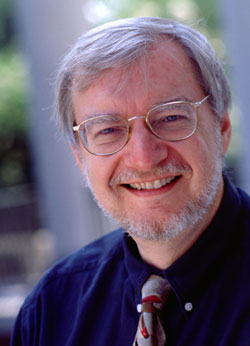TC Part of New Games for Learning Consortium
Chuck Kinzer is TC’s representative at a Microsoft-funded institute that will study how computer games teach math and science concepts
On the premise that the way into the head of an Internet-age kid is through his electronic games, Teachers College is participating in a consortium of universities, funded by Microsoft Research (a division of Microsoft Corporation), that will scientifically study the potential of computer and video games to teach math and science concepts to middle-school children.
Charles Kinzer, TC Professor of Education and director of the Communication, Computing and Technology and Education program., will direct the College’s participation in the new consortium, known as the Games For Learning Institute (GF4L), which is based at at
GF4L is a joint venture of Microsoft Research, NYU and several other higher education institutions, including TC,
“Our goal is not to develop games, but to study why games are effective and how they can best be used to maximize learning,” said Kinzer, who added that the institute will develop “scientifically proven game design principles that maintain the motivational and fun aspects of successful commercial games while providing knowledge about how to make games that can help teachers teach and children learn, specifically in STEM subjects (science, technology, engineering, and mathematics.
Microsoft Research is providing $1.5 million to fund the institute, which is the first multi-institutional, multi-disciplinary venture to examine the science behind games. NYU and the consortium are matching Microsoft’s grant, for a total of $3 million to cover the first three years of research.
Many TC faculty and students are interested in games and their potential for teaching and learning. The Computer, Communication, Technology in Education (CCTE) program offers several courses related to games, game design and learning, and Kinzer teaches a course, “Possibilities of Virtual Worlds.” The CCTE program also houses a games research lab known as EGGPLANT (Educational Games Group: Play, Language, Avatars, Narrative, and Technology), which, through an understanding of play, EGGPLANT seeks to gain knowledge of human cognition, collaboration, media effects, modern culture, creativity, improvisation and other factors within games that have implications for education. Faculty and students involved with the Games Research Lab have broad-ranging interests, and the lab has resources to study of video games, traditional board and card games, role-playing games, games for teaching and learning, "serious" games, media literacy, the psychology of games, and related topics.
Published Friday, Nov. 7, 2008
